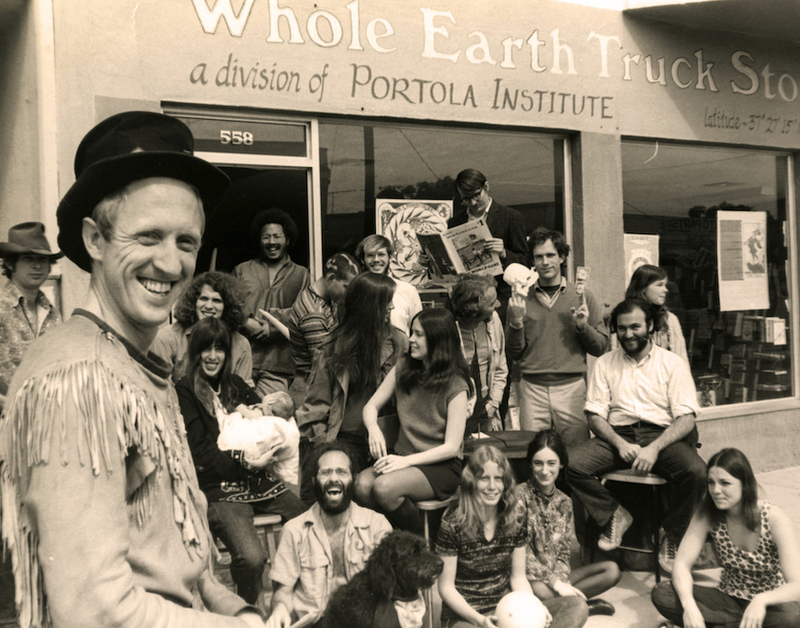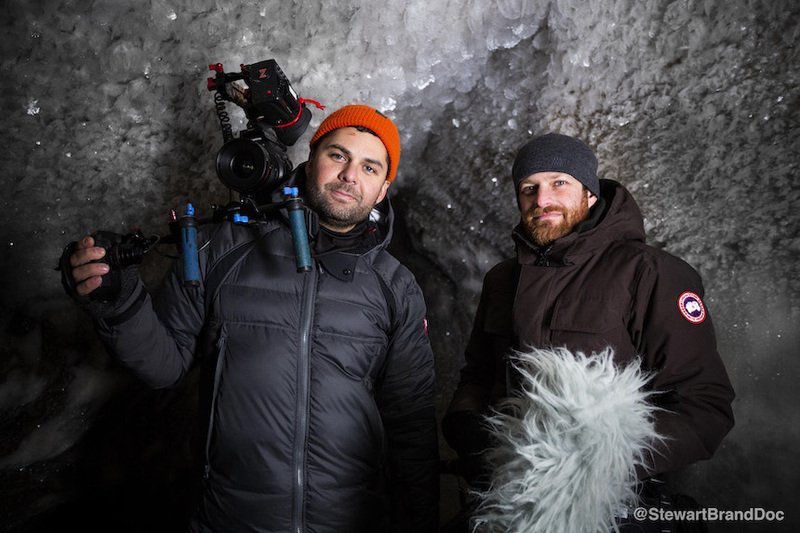SXSW 2021 Interview: WE ARE AS GODS Directors Jason Sussberg And David Alvarado On The Man Who Wants To Revive The Mammoth
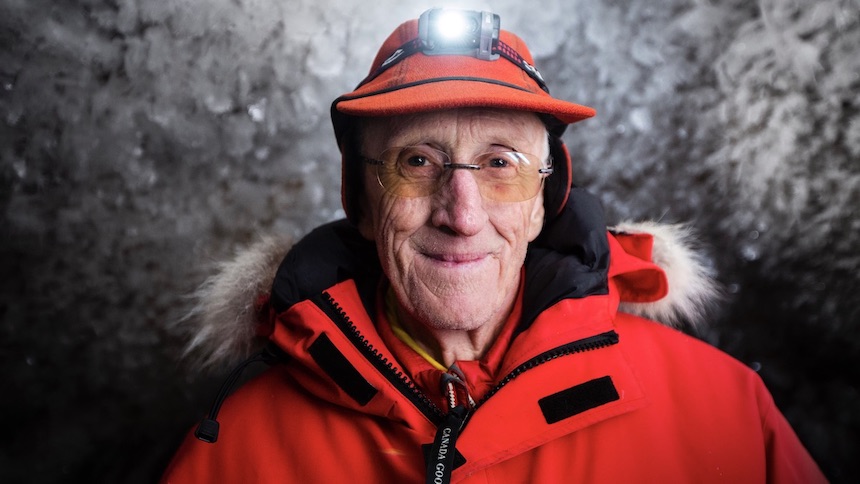
The documentary We Are As Gods focuses on Stewart Brand, a fascinating man whose main current obsession is de-extinction. Brand supports the idea of bringing back various extinct species and restoring ecosystems. His most ambitious project involves the woolly mammoth, a close species (the Asian elephant) and technology for gene editing. The incredible theory claims that the "rebirth" of the "mammoths" could counteract the alarming consequences of global warming in the Siberian region.
In We Are As Gods, documentary filmmakers Jason Sussberg and David Alvarado tackle Brand and partners’ project, even accompanying him to Siberia. At the same time, they shine a light on people, sometimes close to Brand, who question the notion of de-extinction. At one point, for example, they make the obligatory cinematic reference to the classic Jurassic Park, where "playing God" certainly brings disastrous consequences.
We Are As Gods is a complete portrait of Brand, an influential visionary. At the beginning he’s described as a kind of Zelig (Woody Allen) or Forrest Gump (Tom Hanks), because he’s been involved in several important chapters of modern history. In the 1960s, Brand lived in San Francisco, California, where he was part of the Merry Pranksters, friends and followers of Ken Kesey (writer of One Flew Over the Cuckoo's Nest. The heyday of psychedelic drugs (Can you pass the acid test?) and Grateful Dead music, the development of the counterculture and the hippie movement.
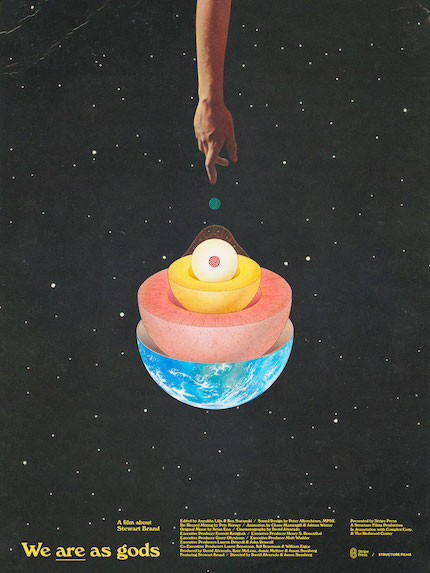
Brand contributed to the growth of environmental awareness: he pushed for a photo of the entire Earth, taken from space, to be published for the first time (Why haven't we seen a photograph of the whole Earth yet?). He also created the publication Whole Earth Catalog, a famous source of information considered "the Google of its time."
Admired by Steve Jobs, Brand always had a fascination for technology and his contributions were decisive in the personal computer revolution. Today he still thinks ahead, focused on building a clock that will last 10,000 years and, of course, on making it possible for mammoths to walk the planet again in several hundred years.
Ahead of the world premiere of We Are As Gods at SXSW 2021, directors Sussberg and Alvarado shared their thoughts on Brand, drugs, climate change, scientific advances, and de-extinction.
ScreenAnarchy: Why do you make documentaries about science, technology and people who think about the distant future?
Jason Sussberg (JS): We’re interested in science and technology, a lot of that leads itself to futuristic ideas. It’s definitely a discipline that’s not like history or social sciences which tend to look backwards; science and technology is very much about our modern world that we inhabit but it also has a step in the future. The most interesting stuff to us is the leading edge of science, using technology to do extraordinary things: life extension or bringing back extinct animals.
David and I love that Arthur C. Clarke quote: “science at a certain point is indistinguishable from magic.” Because we can fly on airplanes, picking up a cellphone, or we’re on this Zoom call. It’s an extraordinary, magical ability, it’s telepathy but it’s not, it’s telepresence, because of technology, the scientists and physicists that did all the hard work that lay the path for the technologists to be able to build awesome products.
That’s the world that we’re drawn to, but there’s not just the technology, it’s about the people at the center of it and their emotional stories. We’re definitely drawn to the charismatic personalities at the center of these extraordinary abilities.
David Alvarado (DA): As filmmakers, we’re also interested in making sure that science plays a role in democracy, you can’t have a healthy democracy without a scientifically literate population. Telling stories in this space is really important.
How did you conceive WE ARE AS GODS?
JS: I’ve been a fan of Stewart Brand’s work since I can remember, when I was 18 I read one of his books and I ran across an old Whole Earth Catalog. After we finished The Immortalists –about life extension scientists who are trying to live forever–, Stewart had launched this project called de-extinction. When I first read about it I was like “holy shit! They’re going to bring back animals from extinction, this is like Jurassic Park.”
In 2013, we made this video on Stewart and the de-extinction movement for Time magazine. After that, we asked Stewart: “can we make a film about your life and de-extinction?” And he passed on it actually. We went and made Bill Nye: Science Guy and then came back to Stewart.
We went to Skywalker Sound in Northern California, we showed Stewart our film Bill Nye: Science Guy. We got to tour the facilities, afterwards we couldn’t go watch the movie because we got bombed by Star Wars: The Last Jedi. To kill time for the next two hours, we ended up getting a bottle of wine and having dinner, we were at this beautiful location and we got to know each other. Stewart watched and liked the movie, then the next thing you know we pitched him on doing the film and he said yes.
DA: Stewart has been a little bit of a hermit, he doesn’t really go out and look for press. Which probably explains why he was telling us that he wasn’t interested in the film. Now he’s in his eighties, I think he was at the right time to think about his life and how people will think about what he’s done. He told us that The New York Times technology writer John Markoff is writing the biography.
And there hasn’t been a better time: one of the most pressing parts of his life and one of his best projects is this de-extinction project, because thousands upon thousands of species are constantly dying because of the imprint that humanity has on the environment. At what point do we start to become aware of that and start to revert the actions? If a dodo bird is killed off, what is the responsibility of humanity to reverse that action that we ourselves did? It’s not a question that We As As Gods really answers, it’s a question that the film asks. We hope that the audience continue to talk about that question after the film is over: what is the role of humanity in repairing the damage that we ourselves have done to the environment?
In an age of one-sided documentaries, why was important to show both sides of the de-extinction debate?
JS: Not taking a side is not because of some journalist balance or any sort of quest for objectivity. It’s because life is not simple, life is not black and white, it’s not for and against. The loudest people in the room are on Twitter having passionate cases, but in reality everybody is nuanced, we live in the shades of grey, so film should live in the shades of grey.
One of the reasons David and I take these big, bold topics, like life extension, a personality like Bill Nye or de-extinction, is because they’re amazing, really fascinating topics that need to be talked about. If we’re going to be living thousands of years, my God, shouldn’t we explore what would that entail? If we are going to bring back a wholly mammoth, it’s not fair to just say yeah let’s do it, or to be hammering against it. These are issues that deserve a hearing through film, debate, and discourse.
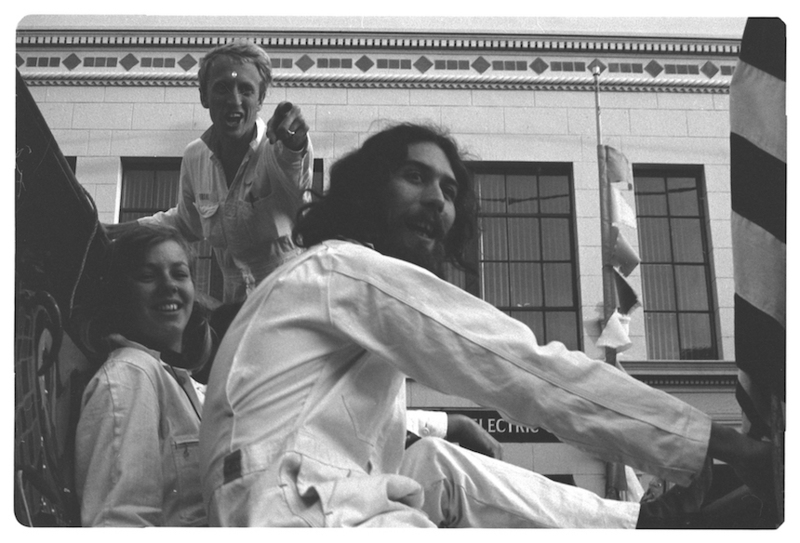 On a personal level, which side of the debate are you on?
On a personal level, which side of the debate are you on?
DA: We should absolutely be developing ways to prevent and reverse some species. If you care about conservation, if you care about there being only so many black-footed ferrets or white rhinos left, that kind of technology to diversify the gene pool of the remaining animals and thereby prevent extinction is great, just like we did with the California condor.
Whether or not we should have wholly mammoths around? I mean, it’s an interesting question. It would be really awesome to see a wholly mammoth, if somebody resurrected one, put it in the wild and it was living a happy life, it wasn’t being tortured or anything like that, I would take an airplane and go see that. I don’t have any opinion whether that’s the most important project worked on right now. It certainly is a fascinating one.
What do you think of the recreational use of LSD and other drugs? A notorious scientist and professor uses heroin regularly.
JS: That sounds like Carl Hart, we actually had the pleasure of interviewing him about his thoughts on drugs. He uses heroin presently, talks about the positive benefits of drugs.
DA: I wouldn’t suggest kids do it or anything like that, but I definitely think LSD is really interesting, how it can open your mind in different ways. Like any other drug, it shouldn’t be abused, but I’m fascinated by adult drug use and what that can do for expanding people’s minds.
JS: The interesting thing about Stewart, to go back to what he was doing at the time (the 1960s), was that he started using LSD back when it was actually state-sanctioned. There was a whole movement to have psychiatrists give people this drug, and it wasn’t just for people who were sick or needed medicine but it was actually for “healthy normal people” to see if it could actually help spark creativity. And it did exactly that, then it “escaped the laboratory” and they started using it in culture, it became a fixture in the counterculture.
Now it’s having a renaissance moment but it’s not through a countercultural movement, it’s actually through people like Michael Pollan writing books about it, about how to change your mind. It’s been promoted by podcasters like Tim Ferriss, who’s funding actual studies in Boston about depression treatment. It’s a good thing.
As Stewart would say: drugs are a technology. Something that we can use to help people, to spark creativity and to become as gods, which is the point of our movie: we have these God-like abilities, and absolutely LSD factored into our ability to break through barriers of our own perception. It’s awesome, drugs are awesome, that’s the pull quote... I’m kidding, don’t do that (laughs).
What do you think of how we talk about climate change?
DA: Climate change is one of the most important issues right now. The de-extinction of animals in order to help fight carbon emissions, that’s super interesting. Slowing down our carbon emissions is likely not enough, so say the scientists. Well, it’s time to start trying to reverse it somehow.
Solar geoengineering and carbon capture are now becoming more and more a part of the solution, but so too is trying to rebalance the ecosystems, specially when the ecosystems are the way they’re now because of human mistakes. To me it feels very clear: if part of your house catches on fire, put the fire out and then repair the damage. I know it’s more complicated than that, but just by analogy that feels like what people like Stewart are talking about. That makes sense, I feel like that’s the right direction to be moving.
Stewart Brand was vital in the personal computer revolution. How important is to introduce him to new generations?
JS: Computers at the time in the 1980s, maybe even in the 1970s, were seen as this cold, hostile, IBM, corporate megaloads. Stewart was able to take this thing that really didn’t have a personal angle and create the aura of this new technology helping people: instead of being the great oppressor, this force that enslaves you, technology can be, in personal computers, a great liberator. When we were doing the research, people were saying that that turn of phrase, the personal computer, the PC, was a Stewartism, because it was the first time it appeared in print: Stewart had written for Rolling Stone this idea of computers coming to the people. That really was a rallying cry, that you could use this new technology to empower people to write their own books, to live a DYI lifestyle, to code their own existence.
Technology is now overreached, Silicon Valley has created this renewed IBM culture of being enslaving us in a way. Facebook is now the new IBM. Google whose phrase was don’t be evil, is now doing exactly the opposite of what they set out to do. David and I are hopeful that there’s a younger generation of hackers and coders who look back at the founding fathers of their industry: Stewart, Kevin Kelly and other founding fathers of personal computers, to use new technology that’s going to actually act as a great liberator, maybe that’s the blockchain, it might actually capture this spirit. There’s a hungry audience out there, that is looking to capture that vibe of information being free, using tools for spiritual and personal satisfaction, away from this IBM oppressor that we’re currently in. I hope kids watch We Are As Gods, I hope new techies are learning where they came from and where we can go.
A version in Spanish of this interview was also published at Cinema Inferno



